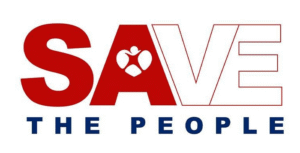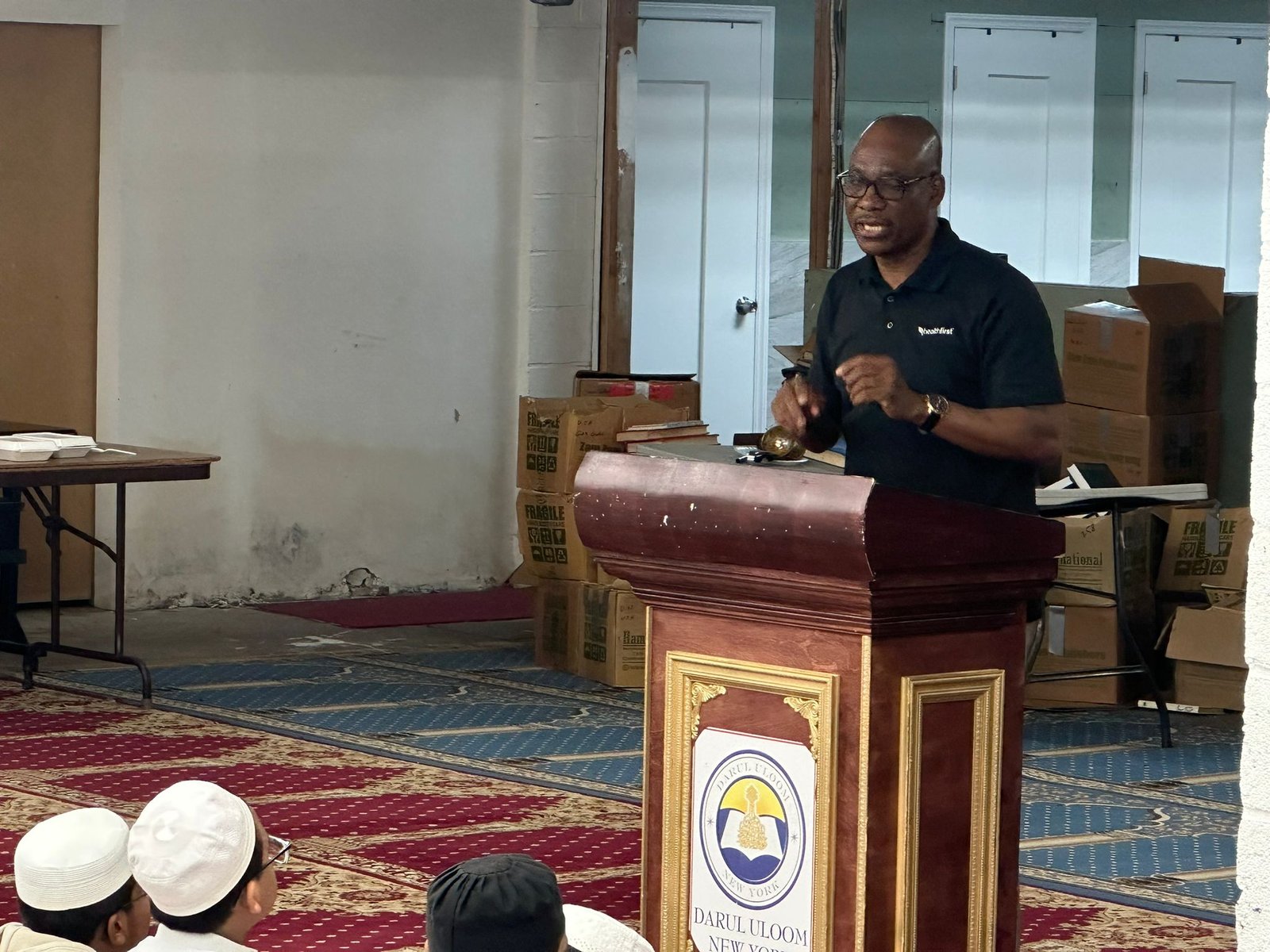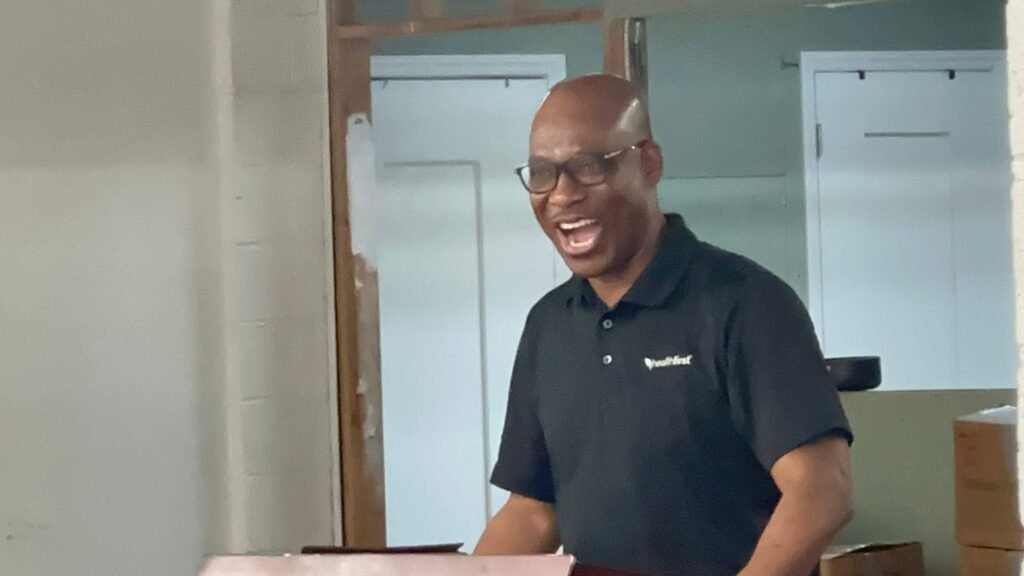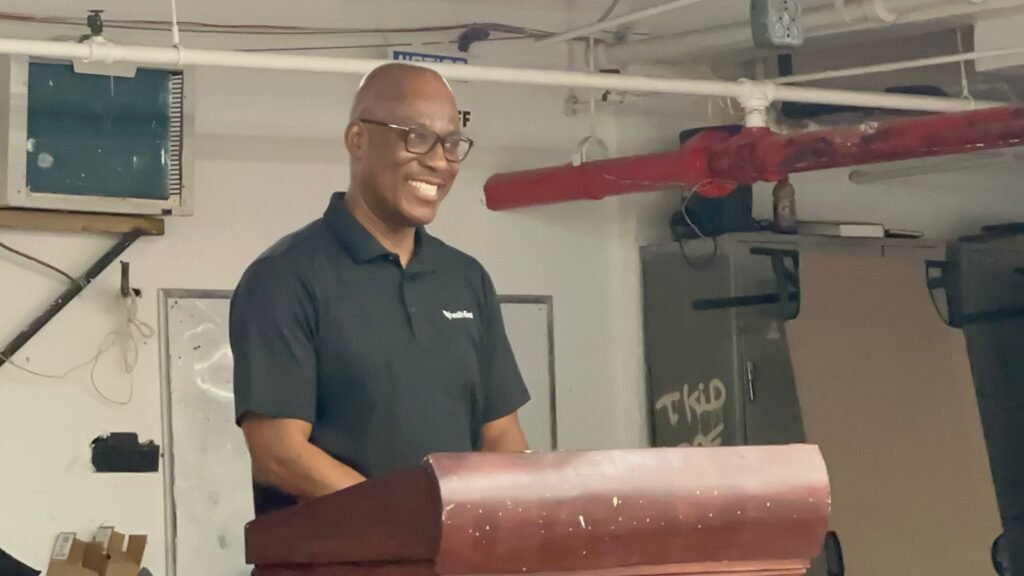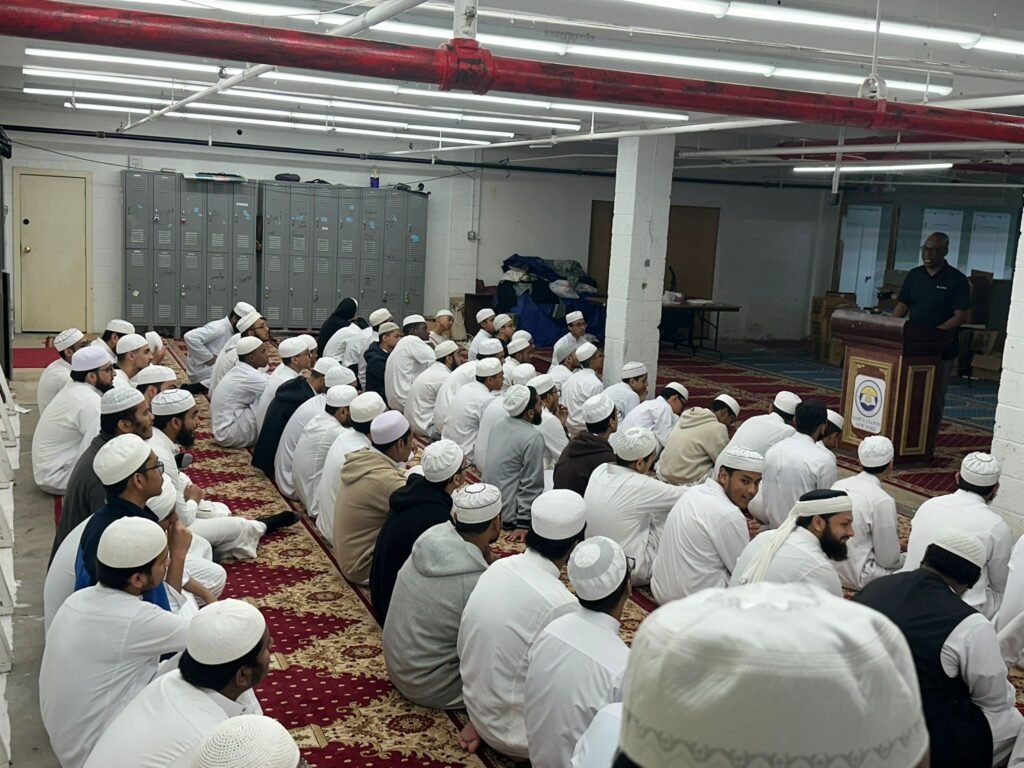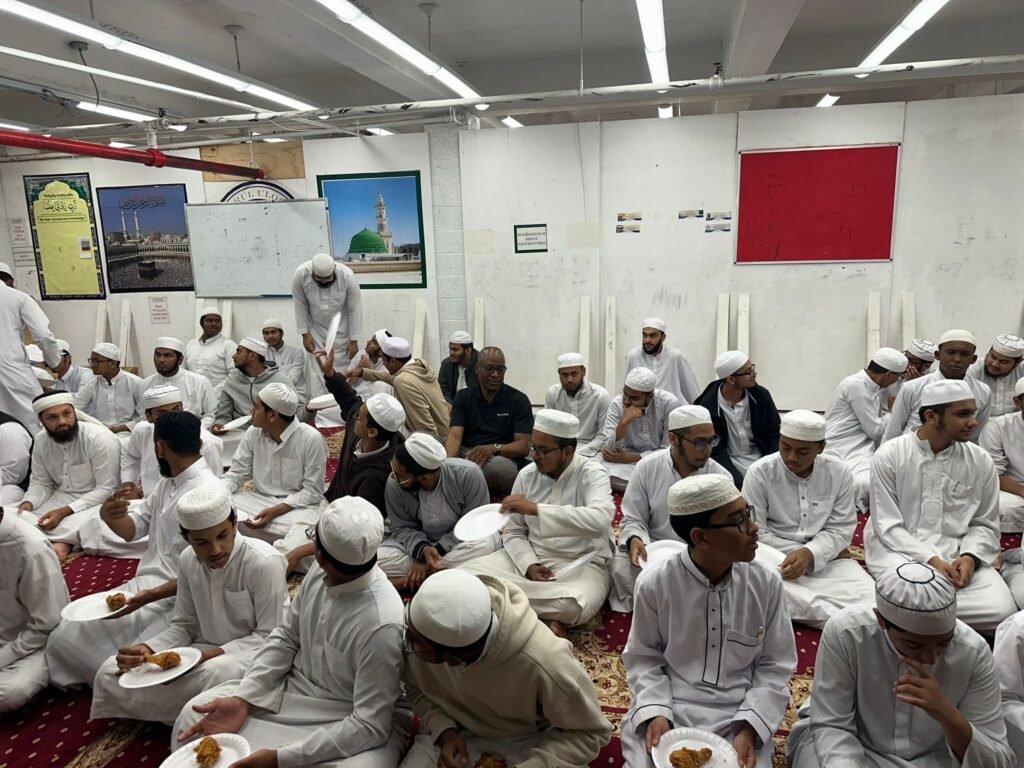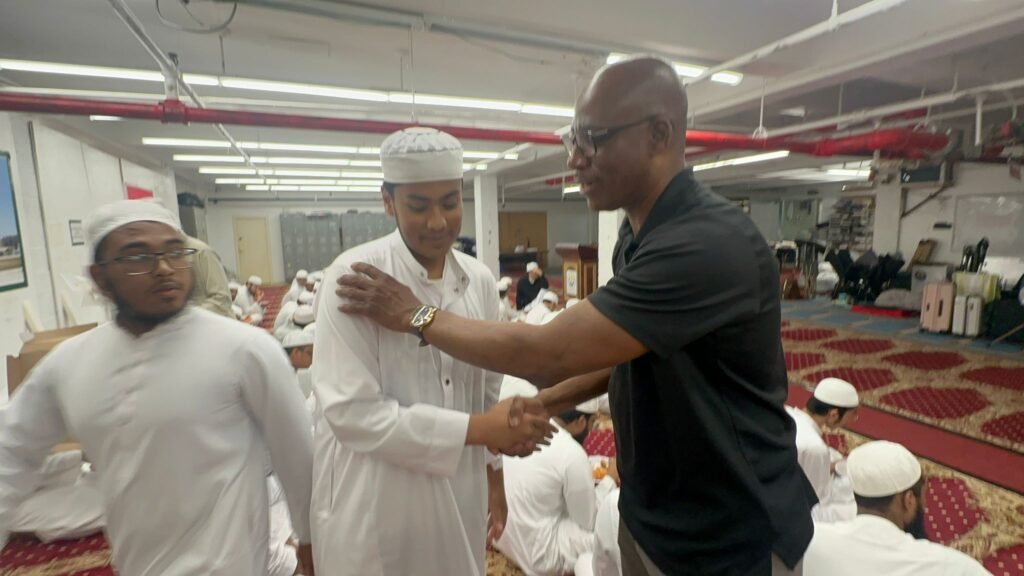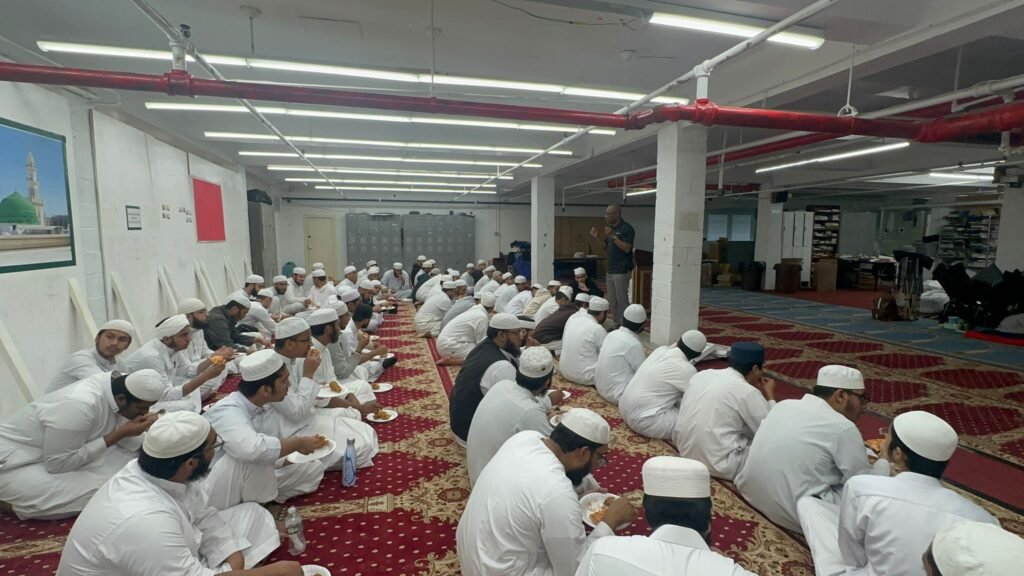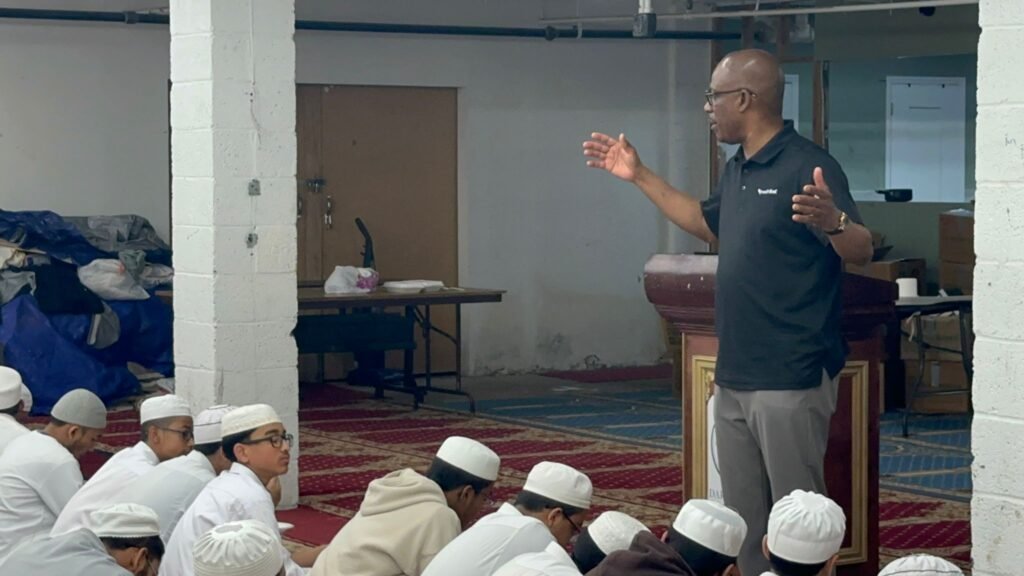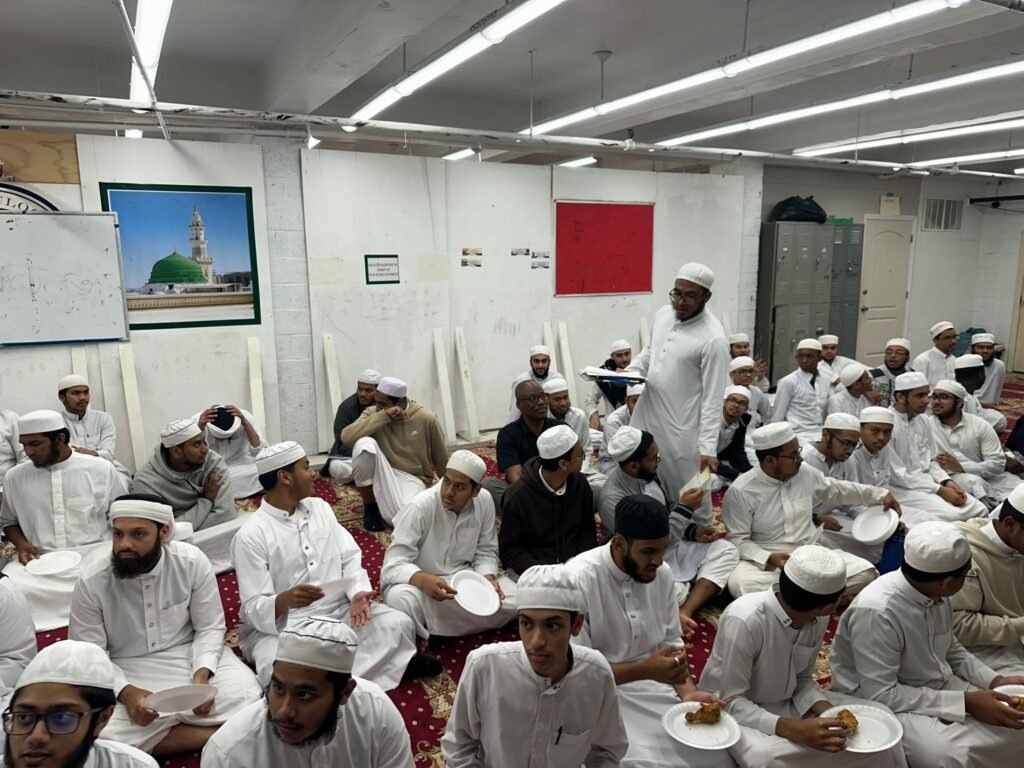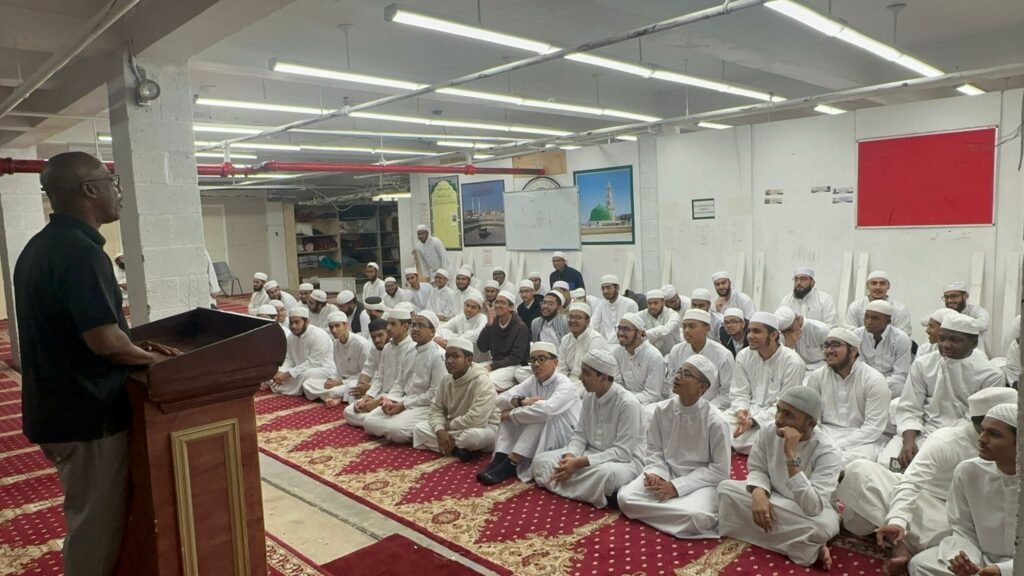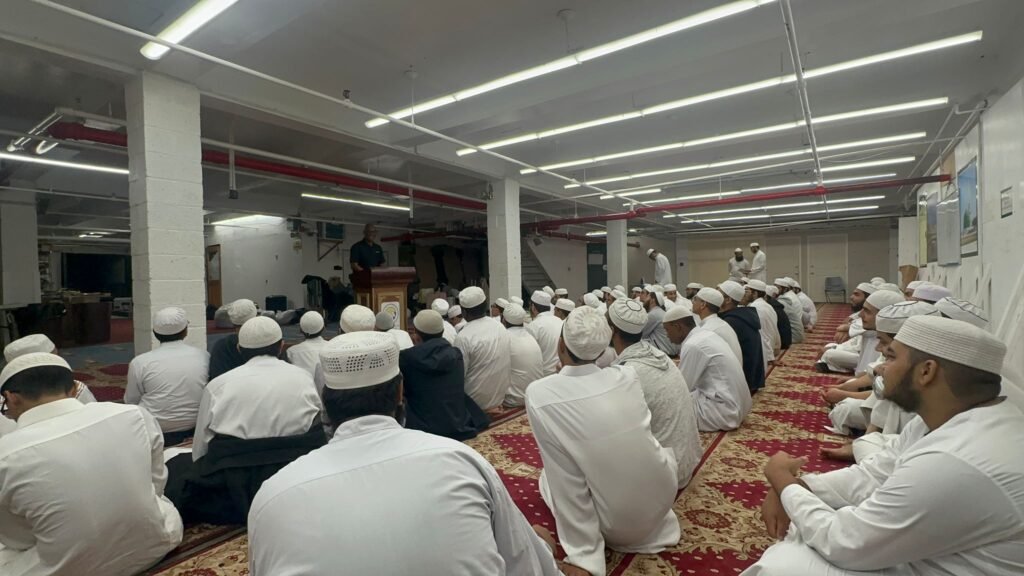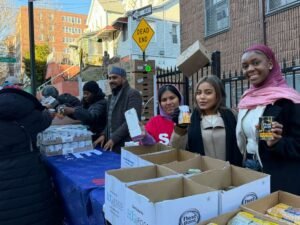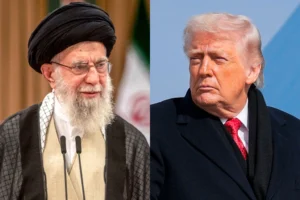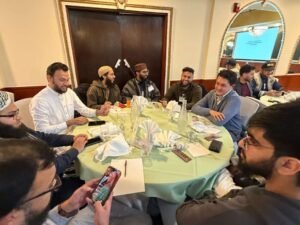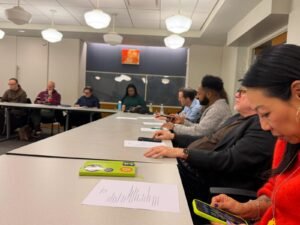Emily Parker :
In a bold and timely step toward addressing mental health in faith-based and immigrant communities, Darul Uloom New York recently hosted a series of workshops designed to empower and educate youth on emotional well-being. Held in partnership with Save the People USA, Human Concern International USA, and the New York City Office for the Prevention of Hate Crimes (OPHC), the initiative reached over 100 young participants, offering a supportive space for dialogue, learning, and healing.
Spearheaded by Dr. Phillip Falayi, a respected mental health advocate and practitioner, the sessions tackled some of the most pressing yet under-discussed challenges facing Muslim youth today. From managing anxiety and stress to understanding trauma and the impacts of hate crimes, the workshops provided essential tools for resilience—delivered through a culturally sensitive, faith-informed lens.
The atmosphere was both open and engaging, with Dr. Falayi using real-life scenarios and interactive discussions to connect with students. He emphasized the importance of early intervention and building emotional intelligence while encouraging attendees to seek professional support without shame. His approach resonated deeply, particularly as he spoke about how systemic racism, Islamophobia, and bullying affect the mental health of young Muslims and youth of color.
Organizers noted that this kind of programming is long overdue. Representatives from Save the People USA and Human Concern USA highlighted the urgent need for mental health resources that reflect the lived experiences of underserved communities. By incorporating religious and cultural understanding into the conversation, the workshops aimed to reduce stigma—still a significant barrier in many households—and to normalize seeking help.
The Office for the Prevention of Hate Crimes, which co-supported the initiative, reinforced its commitment to fostering safe, inclusive environments where all New Yorkers, especially youth, can access pathways to healing. The office’s involvement also signaled a growing recognition among city agencies that hate-fueled violence and bias have long-term psychological effects on young people, particularly those in immigrant and religious minority communities.
Participants left the sessions not only with knowledge but with a renewed sense of confidence in their ability to care for their mental and emotional health. Many attendees expressed appreciation for the opportunity to speak openly and be heard in a setting that respected both their identity and struggles.
The event concluded with a unified message from all partnering organizations: mental health is a right, not a privilege, and addressing it requires collective effort—from families, schools, religious institutions, and local governments alike.
With the success of this initiative, organizers are already planning follow-up programs and outreach efforts across other Muslim-majority neighborhoods in New York City. As they look to expand, they are calling for greater investment, broader partnerships, and community-based strategies to ensure that no youth feels alone in their journey toward wellness.
For more blogs, visit nyn.press
